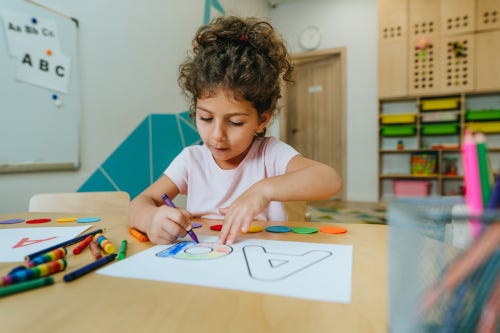The Significance of Fun Learning: Enhancing Children’s Engagement and Motivation towards Studies
Introduction:
Education is most effective when it captivates young minds and sparks their curiosity. Fun learning, incorporating interactive and enjoyable elements into education, plays a vital role in enhancing children’s engagement and motivation towards their studies.

In this article, we will explore the significance of fun learning and its positive impact on children, along with examples illustrating its effectiveness.
Engagement through Active Participation:
Fun learning encourages active participation, transforming the learning experience into an enjoyable adventure. When children are actively engaged in their studies, they become more receptive to new information and concepts.
For instance, educational games that involve problem-solving, such as puzzles or interactive quizzes, not only reinforce learning but also ignite a sense of excitement and challenge among children.
Boosting Motivation:
Fun learning creates a positive association with education, making children more motivated to explore and learn. When learning becomes enjoyable, children develop a natural curiosity that drives them to seek knowledge.
For example, incorporating hands-on experiments or science projects in the classroom can inspire children’s interest in scientific concepts and encourage them to pursue further exploration.
Fostering Creativity and Critical Thinking:
Fun learning activities provide children with opportunities to think creatively and critically. By engaging in interactive and imaginative tasks, such as storytelling or art projects, children develop problem-solving skills and learn to think outside the box.
These activities not only make learning more enjoyable but also cultivate essential skills that are valuable for their overall development.
Improving Retention and Application of Knowledge:
When children have fun while learning, they are more likely to retain and apply the knowledge they acquire. Fun learning activities that involve real-life scenarios and practical applications enable children to understand the relevance of what they learn.
For instance, using role-playing activities in history lessons can help children immerse themselves in the subject, leading to better comprehension and retention of historical events.
Enhancing Social Interaction and Collaboration:
Fun learning promotes social interaction and collaboration among children. Group activities, such as team-based games or group projects, provide opportunities for children to work together, share ideas, and learn from one another.
These activities not only enhance their social skills but also foster a sense of community and cooperation.
Conclusion:
Fun learning holds immense significance in education as it enhances children’s engagement and motivation towards their studies.
By incorporating interactive and enjoyable elements into lessons, educators can create a positive learning environment that sparks curiosity, boosts motivation, fosters creativity and critical thinking, improves knowledge retention, and promotes social interaction.
Ultimately, fun learning empowers children to become active participants in their education, paving the way for a lifelong love of learning.
EdRex Learning offers a variety of excellent tutoring services for students.
Here are some of the best tutoring services provided by EdRex:
With both online and face-to-face sessions at affordable prices, we provide 1:1 or small group sessions that are tailored to meet each student’s individual learning needs.

All of our lesson plans and programs are developed according to the latest Australian curriculum changes. Contact us today to learn more about how we can help your child excel!
Comments
Post a Comment